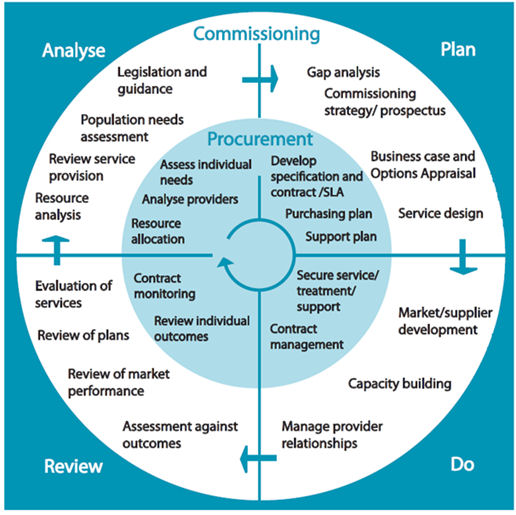Growing Health has been working with food growing projects to help them understand the health service structure which came about after the Health and Social Care Act 2012.
The main changes included:
- The set-up of Clinical Commissioning Groups (CCGs) which replaced the Primary Care Trusts.
- The move of Public Health services to the local authority supported by Public Health England.
- The setting up of Health and Wellbeing Boards to tackle local inequalities in health.
Understanding the difference between Public Health and CCG’s
- Public Health looks at population wide health issues and population level interventions ‘to improve the health of the poorest, fastest’. They focus on improving health and wellbeing and reducing health inequalities working under the new public health outcomes framework.
- Clinical Commissioning Groups focus on treating illnesses and are looking to direct services into key priority areas or population groups within the area. Each GP practice is part of a CCG and there are 211 CCGs in total, which vary in size and coverage, but they commission the majority of health services. This includes emergency care, hospital care, maternity services, community and mental health services.
For more information visit the Kings Fund website.
What is commissioning in the context of health services?
‘Commissioning – the process of assessing the needs of a local population and putting in place services to meet those needs.’ (Department of Health, 2010, Equity and excellence: liberating the NHS, London: DH. Available for download at www.dh.gov.uk)
Commissioning is a cycle of ‘Analyse, Plan, Do and Review’. It starts with strategic planning, by deciding what services are needed and their priority, then looks at what resources are needed to provide these services plus why, how and where, and then evaluating and monitoring the outcomes.
Commissioning Structure
Analyse: The analysis of need, of capacity, assets and resources and of the capability of the market involves agreeing priority needs with partners defining the outcomes to meet those needs.
Plan: Gap analysis, stakeholder engagement, the design of services and service pathways and developing a joint commissioning strategy.
Do: Implementing the commissioning plan, facilitating the market, building capacity, sourcing the providers capable of meeting a specification and contracting for the new services. Ultimately delivering to users.
Review: Contract monitoring and reviewing the effectiveness of the strategy. Reviewing and learning from delivery and feedback from users.
Glossary of terms
You will find a useful guide to the key terms used in relation to commissioning at: http://bit.ly/28KqDlh
Other useful links
Commissioning structures and guides
- A beginners guide to commissioning – navca www.navca.org.uk/resources/76-beginners-guide-to-commissioning
- Influencing local commissioning for health and care, guidance for the voluntary and community sector – regional voices
www.regionalvoices.org/sites/default/files/library/Influencing-local-health-and-care-commissioning-RV-briefing_1.pdf - Influencing the New Health System in a Local Area- A Briefing for Local Voluntary and Community Groups – regional voices
www.regionalvoices.org/sites/default/files/library/Influencing-local-health-and-care-commissioning-RV-briefing.pdf
Contacts
- Clinical Commissioning Groups - www.england.nhs.uk/ccg-details/
- Directors of Public Health www.gov.uk/government/publications/directors-of-public-health-in-england--2
- Health and Wellbeing Boards - www.kingsfund.org.uk/projects/health-and-wellbeing-boards/hwb-map
Growing Health: Growing Health is a national project run by Garden Organic and Sustain, which is funded by the Tudor Trust, to see how community food growing can be routinely used by the health and social care services as a way of promoting health and wellbeing for a range of individuals and population groups.

